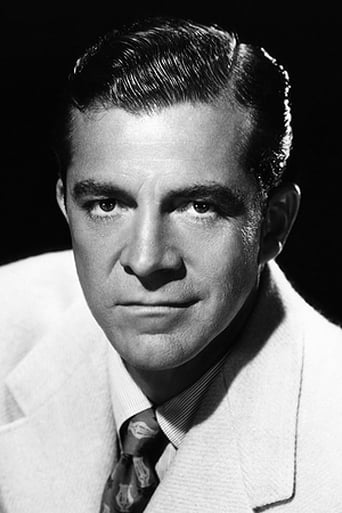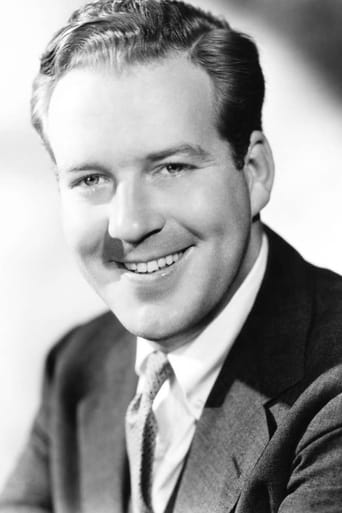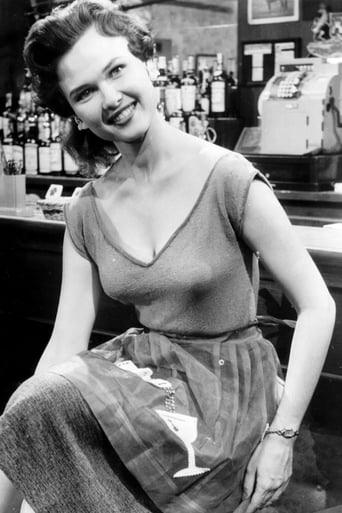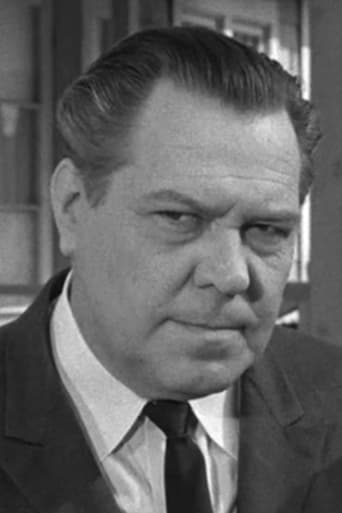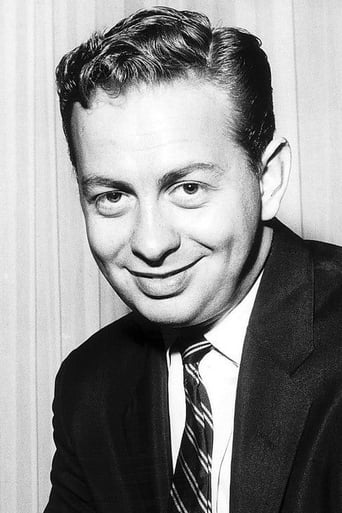Interesteg
What makes it different from others?
SincereFinest
disgusting, overrated, pointless
SparkMore
n my opinion it was a great movie with some interesting elements, even though having some plot holes and the ending probably was just too messy and crammed together, but still fun to watch and not your casual movie that is similar to all other ones.
Winifred
The movie is made so realistic it has a lot of that WoW feeling at the right moments and never tooo over the top. the suspense is done so well and the emotion is felt. Very well put together with the music and all.
bkoganbing
Joe McCarthy may have been censored by his Senate colleagues four years earlier and may have been dead a year, but his spirit lives on in The Fearmakers. That's a pity because the film actually did have some interesting things to say about the advertising industry and high priced lobbyists and most of all the manipulation of polls to get the desired results.Dana Andrews has come home from Korea where he was captured and subjected to some patented Communist brainwashing techniques. Still suffering from symptoms of their torture methods, Andrews is still hoping to resume his career in a small Washington, DC based public relations firm. But when he returns he discovers his partner dead and Dick Foran taken over and expanding operations quite a bit. His clients include some shady lobbyists and some Communist fellow travelers pushing peace at any price.At the suggestion of an investigating US Senator, Andrews goes in to get the goods on Foran. It's very possible his partner may have been murdered.Mel Torme is in this film in a straight dramatic role, totally unrecognizable in horn rimmed glasses and a mustache. Torme plays Foran's computer nerd though he shows he's got some urges that demonstrate computers aren't all he's interested in.Without the heavy right wing ideological bent The Fearmakers does have some interesting things to say. If the producers had only left that out.
PolkainWarsaw
I happened on this film by accident one afternoon and was quietly surprised. I am a fan of film noir and thought this film would be along those lines. And it was a bit in that fashion.( "The Killers" starring Burt Lancaster is one of my favorite examples of the film noir genre). But mostly this movie is centered on Washington D.C. in the late 1950's, and the beginnings of what today is considered lobbying. How the movie reflects our capitol today is almost eerie, with our poll takers and vested interests. Downright prophetic in its nature, I found the correlations between that era and today striking. Witness the beginnings of how you're votes are bought. Disturbing to say the least.I gave the film a "7" rating, because although the movie is worth a look,it is a bit "dated" and does have some "cheese" in the acting.
Michael Moricz
The real irony, when viewing this film, is the way it views those who lobby for special interests in Washington (and the "marketing" of candidates, skewing polling data to achieve the desired results whether the sampling or data is fair or not) has become the norm in our own era. Hence, the villain in this film is pretty much doing the same sort of thing a Karl Rove does now, but we've just changed our perspective on it. The film purports a high tone of moral outrage at political practices which completely dominate our own time.That to me is the most fascinating thing about this film (which is well-made in a clearly B-picture sort of way: not too many sets, a conspicuously minor set of actors except for Dana Andrews--though I agree with others posting here that Mel Torme's performance is a standout--and a certain unadventurousness in the visuals and pacing, despite Tourneur's presence at the helm). By watching the film, we are made aware just how much we've come to accept certain the vast "untruthfulness" or immorality of the way politicians are marketed and elected. It's as though all of the things deplored in this film have completely become "business as usual" in our time, seemingly because the desire to operate this way in politics has survived tenaciously despite the occasional railing against it the way this film does. These days you might hear objections from alternate news sources or fringe publications to this type of deceptive political lobbying and marketing, but other than that it's clearly our daily contemporary political reality being objected to so strenuously 45 years ago in THE FEARMAKERS. While the film unfolds tightly and economically enough, it does suffer from a certain "pat-ness" concerning the plot coincidences concerning the doctor character Andrews meets on the plane at the beginning of the film. That whole subplot unfolds too easily within the overall story, as though the already claustrophobically tiny world of the characters of this movie couldn't possibly expand enough for some randomness or ambiguity between it's small ensemble of characters. Is there no-one in Washington who isn't in some way related to this plot? If memory serves, I don't believe there is ever a line spoken by anyone in this film who is not in some way part of the web of characters involved somehow for or against the unfolding scam, even though we are in cabs, in hotels, in a boarding house, on a plane, and in the city of Washington, throughout.Still, it's worth the time invested, and presents a curiously brusque performance by Andrews. His character is supposed to be tired and unstable after his ordeal in Korea, and yet it's difficult to know whether the occasionally zombie-like performance of Andrews in this film is entirely intentional. The actor himself seems fatigued and lethargic at times-- is that all for the sake of the character? But there are enough little twists and surprises in this film to hold our interest, and if the film feels at time like an extended episode of the old Perry Mason TV series, that's not necessarily a bad thing if you like that sort of presentation (as I admittedly do).I'd also agree with others here that this is a film ripe for a remake, although there is no doubt it would be a COMPLETELY different movie, with a completely different moral sense.
Paul Curtis
This low-budget 50's thriller has a treatment standard for its time, but the premise is fascinating. Dana Andrews plays Alan Eaton, a veteran of the Korean War who comes home (after years of being brainwashed as a POW.) When he returns to his Public Relations firm in Washington, DC, he is surprised to find it has been sold by his former partner, who later died; his own name has been retained only for the goodwill value he had generated. Soon after, he comes to suspect that the firm no longer uses polls and surveys to shape its PR campaigns, it conducts its surveys in accordance with a hidden agenda and shapes the data to meet its own demands. By the end of the film, the entire conspiracy (and its plot to get a man elected Governor) is exposed. Americans are free to believe everything they read, once again.Everything about the movie is just what one would expect from an inexpensive thriller from the era, and that's not bad at all. Probably the most appealing character is played by Mel Torme (Andrews is much too surly - and for good reason - to capture audience sympathy), a number-cruncher who remains oblivious to the moral implications of the data he is massaging for his employers. His best moment comes when he picks EXACTLY the wrong moment to strike up a conversation with Marilee Earle; the audience knows she can't possibly tear her attention away from a task she has been sent to perform, but we all know how it feels to want to break through another person's preoccupation.Thematically, the film bites off more than it is prepared to chew. The premise (that some distinct group may control a substantial part of the information we Americans receive every day) is both disturbing and plausible. We do our best to make sure that no single source can exert too much power over information, but we can never be sure just how much of the data we believe to be factual, is actually cooked up by people with an agenda. Exposing one conspiracy (as seen in The Fearmakers) does not stamp out all such conspiracies at once, and the film offers no hint of assurance that the public will be any wiser, the next time information is manipulated. One may extrapolate that there is a terrible danger in trusting ANY source of information, but no solution is suggested.A minor disappointment comes from another important topic that is introduced at the beginning and then thrown away: Eaton's brainwashing. He has apparently been subjected to gruelling torture and mind control in the recent past, but it has no effect at all on his behavior except to make him grumpy and subject to sudden headaches. Basically, this is used as a plot device which allows the bad guys to get the upper hand at times, but nothing in the story really turns on it. Perhaps after seeing The Manchurian Candidate, one's expectations are set too high; certainly one can't fault the scriptwriters, as the novel had not yet been published.
The most unfortunate aspect of the movie is that a 1950's happy ending is predetermined. By the 1970's, filmmakers would be comfortable creating conspiracy stories with darker endings, and today it is difficult for viewers to accept a movie in which a problem like this one is completely solved. By current standards, the last few minutes of The Fearmakers are dreamlike and childish...and perhaps this explains some of the film's charm. I'd love to see a remake of the movie, set once again in the 50's, nearly identical right up to the end, and then have Alan Eaton wake up to discover that the conspiracy has NOT been neatly wrapped up at all. It's enjoyable to imagine a finale in which he runs, Kevin McCarthy-like through Washington DC, grabbing away people's newspapers and shouting "Where do they get their facts? Where do they get their numbers?" Who knows? Seems like they're making a lot of remakes these days, and this one would be do-able with a small budget...
